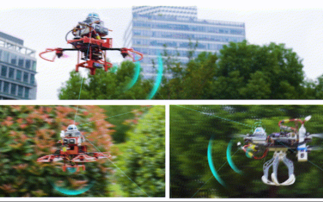Open Bionics wins the UK leg of the 2015 James Dyson Award
A 3D printed robotic hand prototype from Open Bionics has demonstrated how advanced prosthetics can be manufactured cheaply, and has won the UK leg of the 2015 James Dyson Award. The robotic han...
To continue reading this article...
Join Computing
- Unlimited access to real-time news, analysis and opinion from the technology industry
- Receive important and breaking news in our daily newsletter
- Be the first to hear about our events and awards programmes
- Join live member only interviews with IT leaders at the ‘IT Lounge’; your chance to ask your burning tech questions and have them answered
- Access to the Computing Delta hub providing market intelligence and research
- Receive our members-only newsletter with exclusive opinion pieces from senior IT Leaders




















